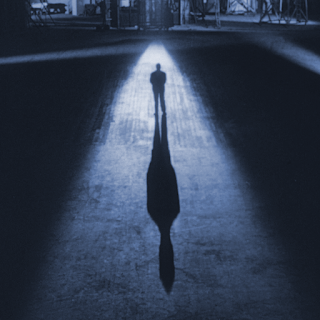Some people who are not our formal mentors nevertheless cast a long shadow over us. For me, one was Dr. Richard V. Lynch, Jr. I met him in June of 1972, when he did my enlistment flight physical for the Air Force Reserve (to become a medic in an air evac squadron). He listened to my heart with a stethoscope and frowned. Then he told me I had an extremely minor murmur, which might even go away as I got older. It wouldn’t prevent me from being on flying status though. Most would not have noticed it, but he was a professor at the West Virginia University medical school.
In a blog post on August 26, 2011 titled Selection bias I discussed another encounter with Dr. Lynch. I was working as a medic in the Air Force Reserve clinic at the Greater Pittsburgh Airport. We did routine flight physicals, each of which included a 12-lead electrocardiogram (EKG). A special die was used to trim 3” samples from those 12 strip charts. Then each set was mounted on a self-adhesive form. Lt. Col. Lynch was our clinic commander. Each afternoon he would eagerly pounce on that stack of EKG forms and go through them with a fine-tooth comb. Dr. Lynch even replotted them as vectorcardiograms. He had realized that if a specialist doesn’t do something about it, he mainly will see referrals where another physician first looked at the patient, ran an EKG, and noticed there was something very wrong. His diagnostic skills gradually will deteriorate. He knew the way to avoid that problem was by looking at a sample of healthy people every month. Those flight physicals were his reality check for staying sharp.
Then there was the case of the freaked-out Army Guardsman on a summer Sunday morning. He and a buddy had been out on maneuvers in the woods of South-Central Pennsylvania. They were sleeping in a pup tent. Long before dawn he was startled awake by a raccoon crawling on top of his sleeping bag. He was afraid that the overly curious ‘coon was rabid, he’d been bitten, would get rabies, and would die. His buddy grabbed a jeep and drove them both to the closest military medical facility, which was us. They were already waiting in the parking lot when we opened for sick call at 8:00 AM.
Dr. Lynch respectfully listened to his story, and then calmly told him to remove his shirt and undershirt. Then he carefully and meticulously examined the panicked guardsman’s face, chest and arms. Dr. Lynch told him that he didn’t see any puncture marks from bites, or even any scratches. His reassuring manner gradually calmed down that very agitated guardsman.
The next year they promoted Dr. Lynch to a full Colonel. It forced him to retire, since the clinic commander position only called for a Major.
Richard V. Lynch, Jr. got his MD degree from the University of Pennsylvania in 1943. He was an Army captain for two years, and took advanced medical training until June of 1949. Then he practiced internal medicine in Clarksburg, West Virginia for two decades. He also served two four-year terms on the city council. He served as president of the West Virginia Diabetes Association, the West Virginia Heart Association, the West Virginia Tuberculosis and Heath Association, and the West Virginia State Medical Association. Then he became a professor at the West Virginia University medical school in Morgantown, and chief of their hospital’s outpatient department. He eventually retired, and died in 1997 at age 78.
The image came from a trailer for the Hitchcock movie The Wrong Man at Wikimedia Commons.

No comments:
Post a Comment